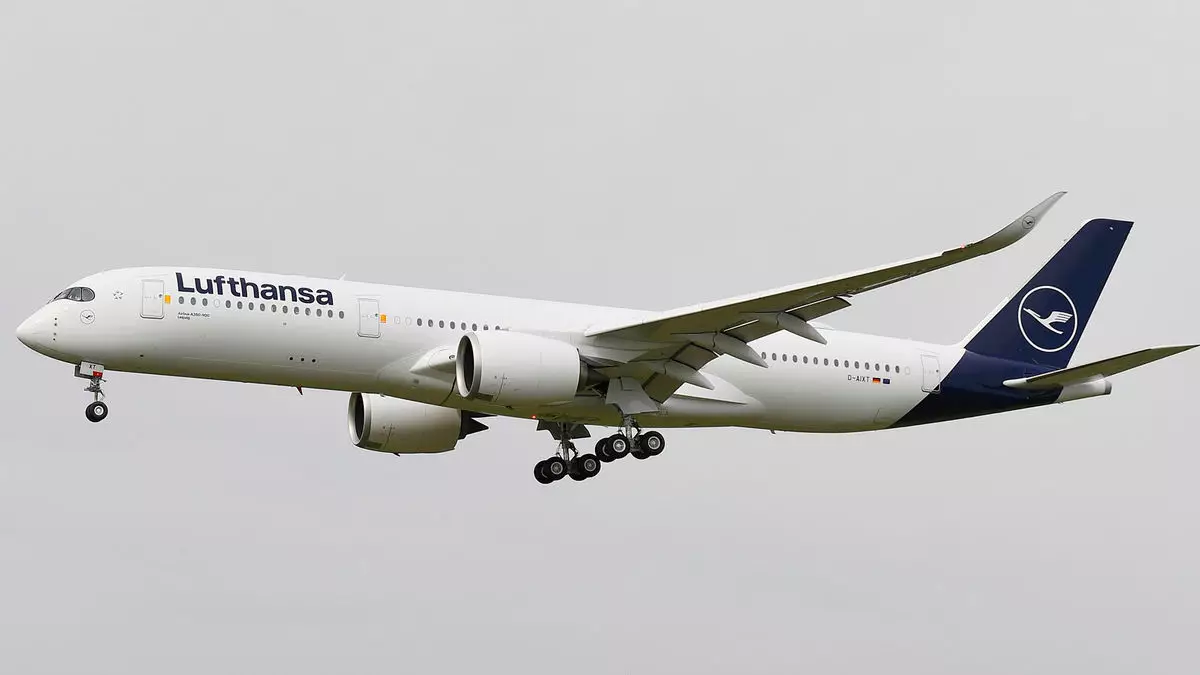In a significant move reflecting ongoing concerns regarding discrimination in the aviation industry, the U.S. Department of Transportation (DOT) imposed a $4 million penalty on Lufthansa in relation to an incident from May 2022. This decision arises from the airline’s handling of a group of Orthodox Jewish passengers who were set to travel from New York to Budapest via Frankfurt. The case not only highlights the challenges airlines face in enforcing policy compliance during flights but also raises critical questions about how discrimination affects passengers based on their religious and ethnic affiliations.
The situation unfolded on May 3, 2022, when a group of 131 passengers, predominantly identifiable by their Orthodox Jewish attire, boarded a flight from JFK to Frankfurt. They were en route to honor a rabbi—a fact that underscores their shared cultural and religious identity. While Lufthansa had mandated face masks on flights due to prevailing health concerns, the enforcement of these rules during the trip became problematic. Although the flight crew issued instructions regarding the mask requirement and prohibitions against congregating in aisles, compliance proved to be uneven.
Upon arrival in Frankfurt, the flight crew reported violations of airline policy, claiming that several passengers had not adhered to the mask requirement. However, the absence of specific accusations against individuals created a dilemma for the flight crew, culminating in a controversial decision: all but three of the passengers were barred from boarding the continuation of their journey to Budapest. The DOT’s consent decree states that this action, taken en masse without distinguishing individual offenders, resulted in discriminatory repercussions against the affected group.
The $4 million fine serves as a stark reminder of the complexities involved when enforcing airline policies. Many passengers found themselves embroiled in a situation that left them feeling unfairly treated based solely on their cultural and religious identity. The DOT’s findings suggest that the airline’s lack of a targeted approach allowed for unintended discrimination, complicating the narratives surrounding compliance and accountability.
Lufthansa has publicly stated that the denied boarding was a result of poor communications and a protracted decision-making process rather than an intent to discriminate. According to the airline, the flight crew struggled to ascertain specific rule violators amid a larger group of passengers engaged in various degrees of noncompliance. While this rationale attempts to clarify the airline’s position, it simultaneously raises concerns regarding the efficacy of their enforcement measures—a key element in ensuring that air travel maintains an equitable atmosphere for all passengers.
In light of the incident, Lufthansa has expressed its commitment to addressing the issue, collaborating with the American Jewish Committee to develop training programs aimed at combatting anti-Semitism and promoting understanding among employees. The airline’s engagement with the Jewish community signifies an acknowledgment of the need for change within its operational framework—crucial steps toward fostering a more welcoming environment for passengers from varied backgrounds.
The decision to agree to the financial penalty, despite contesting the DOT’s findings, speaks volumes about the airline’s desire to avoid protracted litigation. This resolution underscores the critical importance of operating within frameworks that prioritize inclusivity and respect for diverse cultural identities. Airlines are not only responsible for enforcing their rules but also for understanding the broader implications of their decisions on passenger identity and group dynamics.
The Lufthansa incident illuminates a larger issue of discrimination in air travel, serving as a call for greater awareness among airlines about the specific challenges faced by various demographic groups. As the industry continues grappling with evolving norms and expectations, both airlines and regulators must work in tandem to protect the rights of all passengers and foster an environment of respect and acceptance.
Ultimately, this case serves as a reminder that swift actions taken in the name of safety must be balanced with a profound understanding of the cultural contexts in which they are enforced. As airlines navigate the complexities of passenger demographics and regulatory compliance, the stakes have never been higher for establishing practices that are inherently fair and equitable.


Leave a Reply